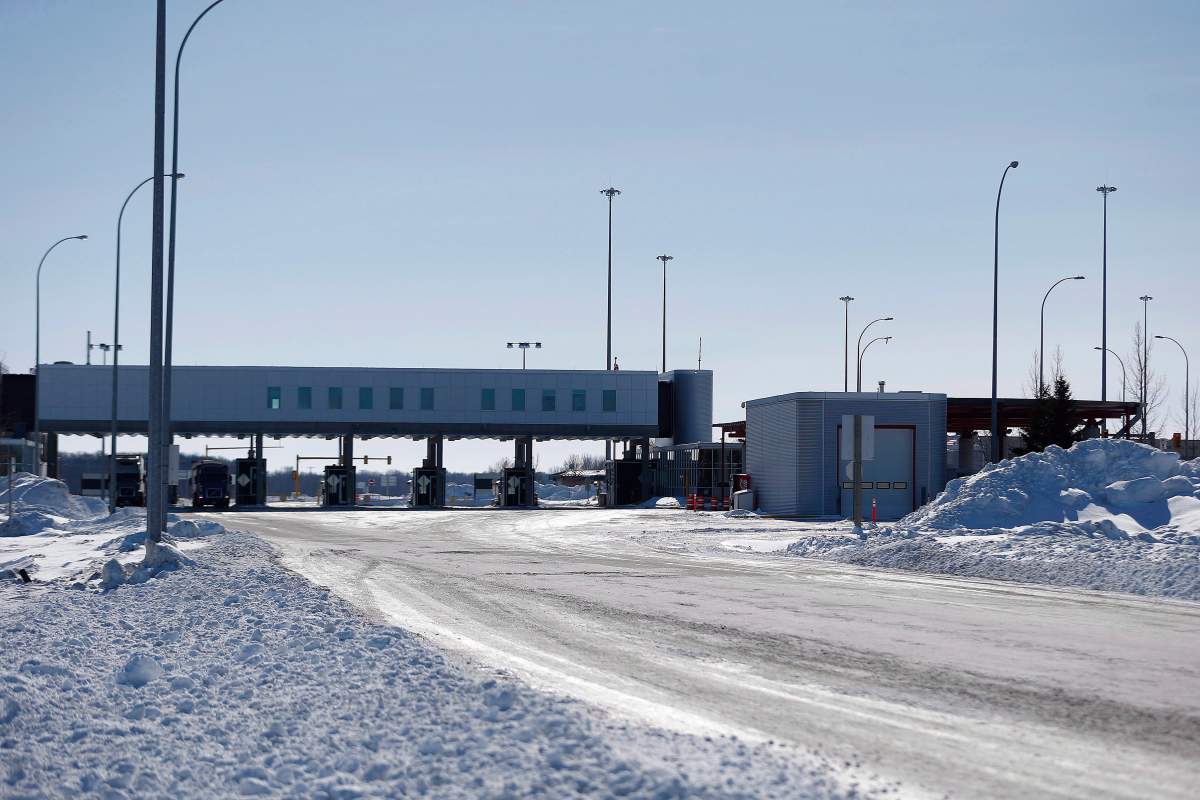Police in a western state of India have begun delving deeper into the deaths of four Indian migrants whose bodies were found in Manitoba just short of the Canada-U.S. border.

Ashish Bhatia, director general of police in Gujarat, says investigators are trying to determine whether there was a travel agent in India who helped the group.
“It’s very clear that these people went to Canada and they were illegally trying to enter the U.S.A., so … we are looking into that,” Bhatia said in an interview with The Canadian Press.
RCMP found the bodies of a man, a woman, a teen and a baby last week near Emerson, Man. Police believe they had tried to cross into the United States during a heavy snowstorm in freezing temperatures.
Investigators have said they believe the deaths are linked to a human smuggling scheme.

Seven people did make it across the border. Two were found in a van with a man who now faces charges. The others were picked up by border patrol officers a short distance away.
Steve Shand of Deltona, Fla., faces counts of transporting or attempting to transport illegal aliens. He was released from custody on Monday.
Bhatia said Indian authorities are aware that people leaving for other countries don’t always have proper documents to enter the United States. “This has been going on (for) years. Legally people go; illegally also people go.”
Two immigration experts and an investigator want anyone considering illegal channels to understand the harsh reality of human smuggling.
“A lot of smugglers will give the false pretence that it’s safe and easy to cross unlawfully,” said Jamie Holt, acting special agent in charge of U.S. Homeland Security investigations into the illegal movement of people.

Get daily National news
“The smugglers have a very specific way of doing things. It’s a business for them.
“It’s about money, not about people.”
Court documents state one of the individuals who was picked up told officers his group had been walking for 11 hours through the bitter cold. One woman was taken to hospital because one of her hands was to be partially amputated.
The man said he had paid a large amount of money to get a fake student visa in Canada and was expecting a ride to a relative in Chicago after he crossed, the documents say.
Deepak Ahluwalia, a Canadian immigration lawyer working with asylum seekers in California, said the Emerson crossing is frequented by smugglers and migrants who know its remoteness makes it inaccessible to patrol officers.
Yvon Dandurand, a criminologist at the University of the Fraser Valley in British Columbia, said people turn to smugglers for help because they would not qualify under immigration law. Documents can also take years to process.
People migrate for two main reasons: to seek out better economic opportunities or to be reunited with family, he said.
It’s a lucrative business. Dandurand said some smugglers charge US$10,000 to US$50,000 per person. Smuggling operations can be as small as five to 10 people working together in different countries, he added.
“They make a lot of money out of people’s despair (and) sometimes ignorance. They’re easily duped,” said Dandurand, who has been studying migrant smuggling for 25 years.
Ahluwalia said he has helped a lot of Indian asylum seekers coming to the U.S. through Canada.
Investigators are still piecing together the latest group’s motive for crossing, but Ahluwalia said in many cases he’s handled migrants have been scammed in Canada by a lawyer who promised false documents.
“We see that a lot.”
Once migrants have made contact with a smuggler through an ad or word of mouth — and provided payment — they usually receive general instructions about their journey, Ahluwalia said.
“It’s so common for a smuggling agent to just say, ‘Oh, the border is right there,’ but the agent neglects to tell you that you have to walk for two days.”
Holt said cellphones typically don’t work because the migrants have been dropped off in the middle of nowhere and told to walk in a specific direction, regardless of bad weather or lack of food and water.
“They know that once they put you across, their job is done.
“They don’t really have any incentive to make sure that you end up safe,” Ahluwalia added.
“In this case, I don’t know anyone who could be in their right mind to tell them to make this journey knowing that the mom had an infant in her hands,” he said.
“It’s just sad that four people died, and they died so brutally and so tragically.”








Comments